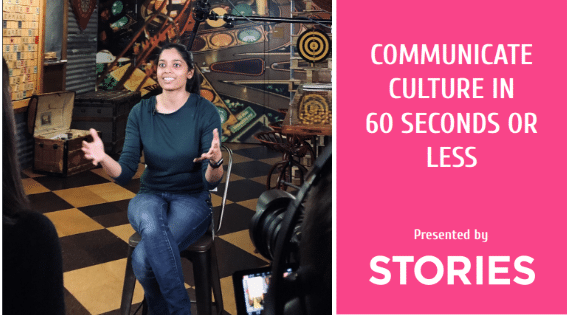It’s a terrible day at the office: 4 stories you should share right now
This post is inspired by a DisruptHR presentation we’re giving on November 6th (DC friends, get tickets here).
Having a No Good, Terrible, Very Bad Day didn’t stop when we reached adulthood. Sometimes, these days happen at (or because of!) our workplace. In employer branding and recruitment marketing, we don’t often lead with these stories.
But sometimes we should.
The ultimate test of good recruitment marketing content is the insight it provides candidates. That’s what they are searching for, it’s the content that resonates, and inspires action (to apply, or join a talent community, or not). Our bad days give candidates insight into our work and workplaces, and the right stories should be celebrated and promoted.
So, which bad days should you be sharing?
Here’s four.
1. Stories that show company growth / pace
Pre-Stories, I was interviewing for a job I thought I wanted. The last step was faxing my W2 info to the HR Manager to verify my past compensation.
She called to say it didn’t go through. I faxed it again. And then she realized she had given me the wrong fax number. I had sent all my personal info to a random fax machine in DC (twice).
“I’m really embarrassed,” she said. “This is such a bad day. I am so overwhelmed. We are doubling in size and I really need help. I’m so sorry. Do you still want to work with me after this?”
Was she kidding?? I wanted this job more than ever. I was the right candidate for the job of building a recruiting function from scratch in a rapidly growing company. All I saw was opportunity, to build, to improve the candidate experience, to help a future teammate. I had the insight I needed to know this was an environment I would thrive in.
Bottom line: Her bad day as a hiring manager increased my desire to work there as a candidate.
2. Stories that show company purpose
Chris Berry, CEO of Visionist, had to comfort his daughter’s fears after 9/11. His story connects you to the organization’s purpose:
3. Stories that show how your company reacted
The real put-up-or-shut-up culture stuff is what your organization does when faced with good and bad news, in times of unexpected conflict, tragedy, or celebration. The same goes for how they treat their employees in their most vulnerable moments.
Take Rae, for example, when faced with an unexpected health emergency.
After returning from serving our country overseas, Mollie Mae Potter returned to the US and had a difficult time transitioning. Soon she was living out of her car and struggling to find a job. Then she got a call from Dell.
4. Stories that show values in action
And sometimes, a terrible day for you, is not a terrible day to the storyteller. That’s great!
Once I tried to recruit a warehouse manager from Amazon in January. This guy had just missed time with his family to deliver packages. Surely, I can recruit him to a company that doesn’t have this holiday intensity.
Nope. He saw it as an opportunity to show up for the customer, which is one of Amazon’s values. He was thrilled that his team could execute on the mission. If he told that story to candidates considering a Warehouse leadership role at Amazon, that would detract a lot of people. That’s a good thing, because that’s reality.
If you’re sharing real insight into your culture, you’re winning the hearts and minds of candidates. Focusing on moments that polarize are a good thing in your recruitment marketing content.
Want more examples of employee stories that communicate culture? Download 10 examples from leading companies here and below.


